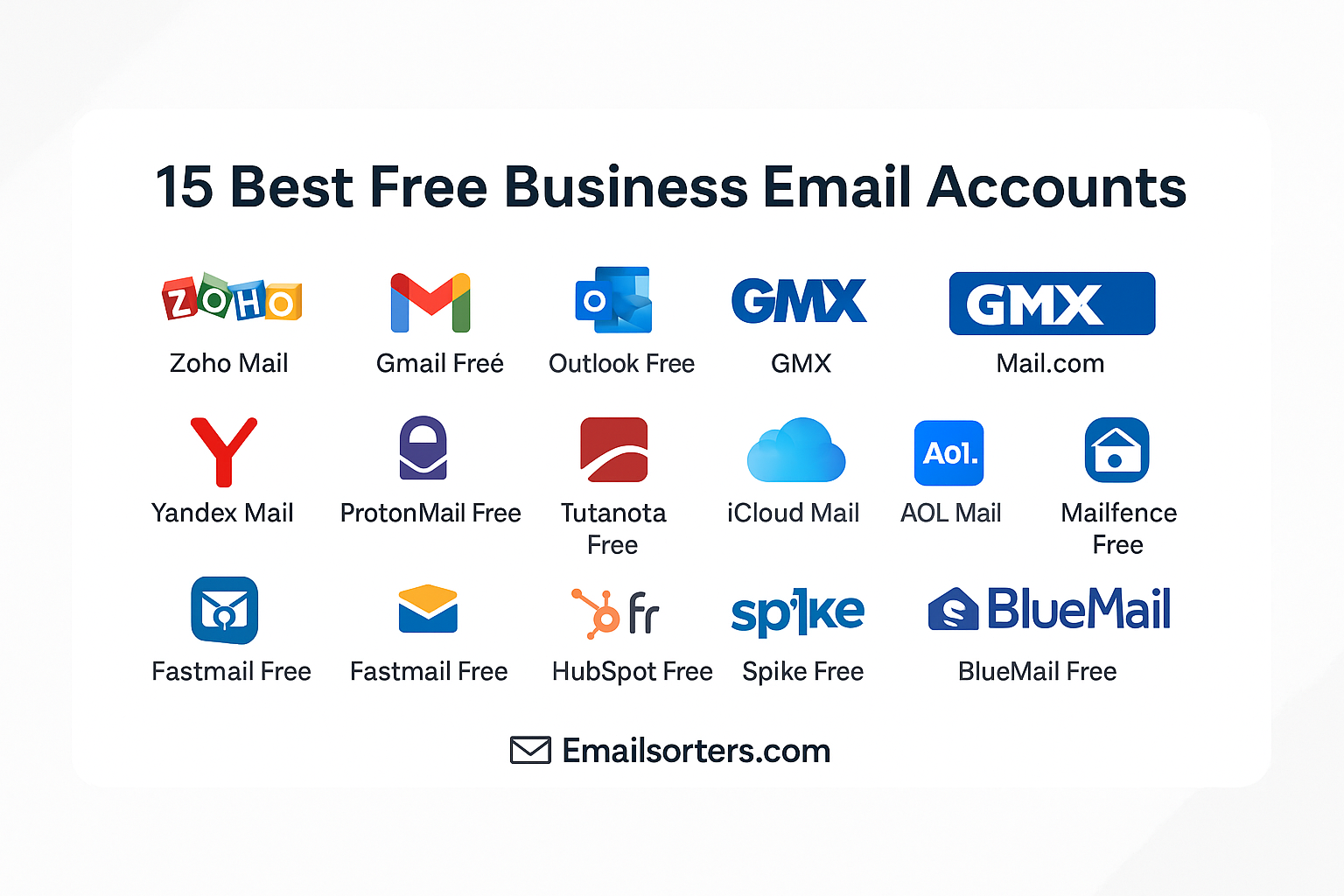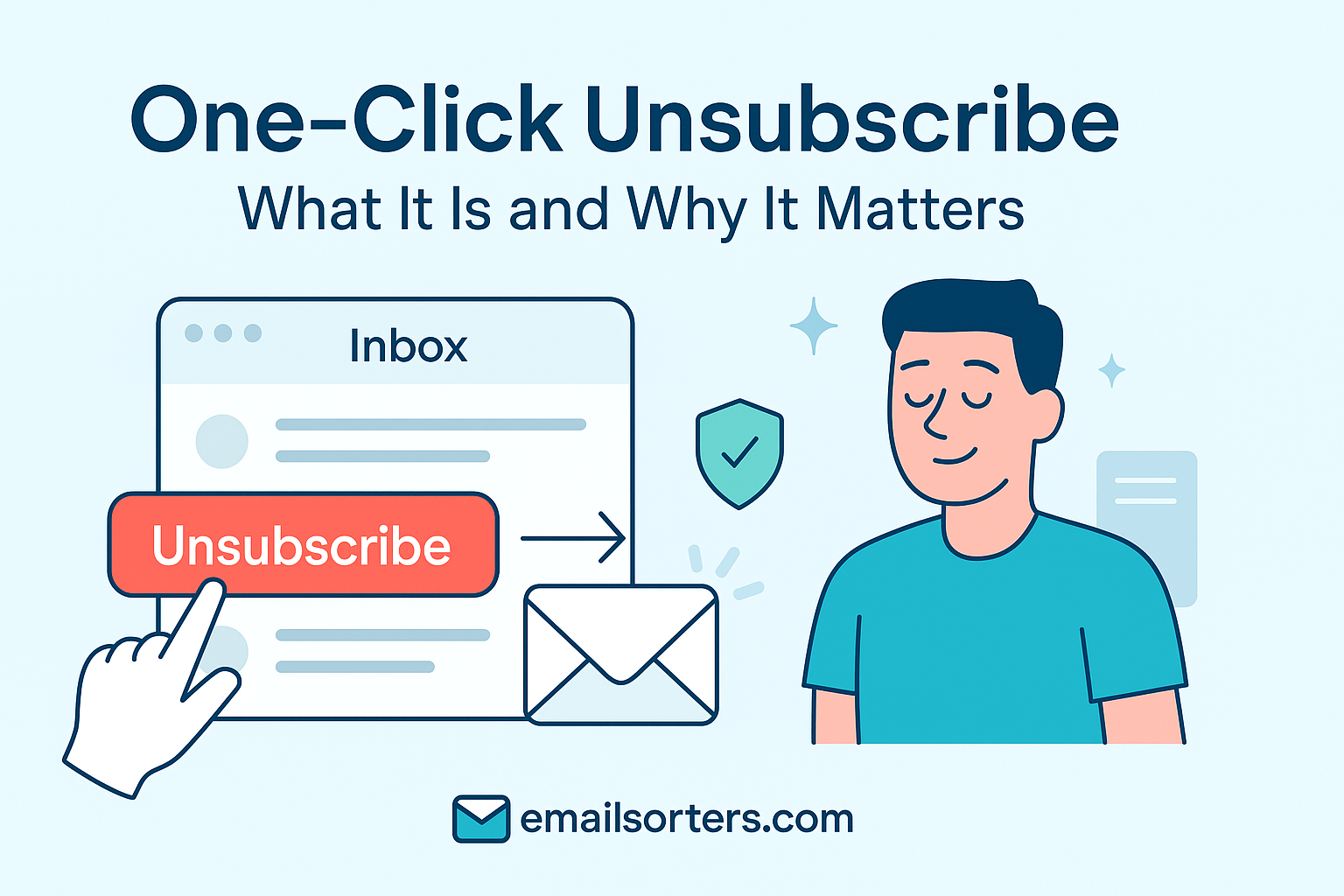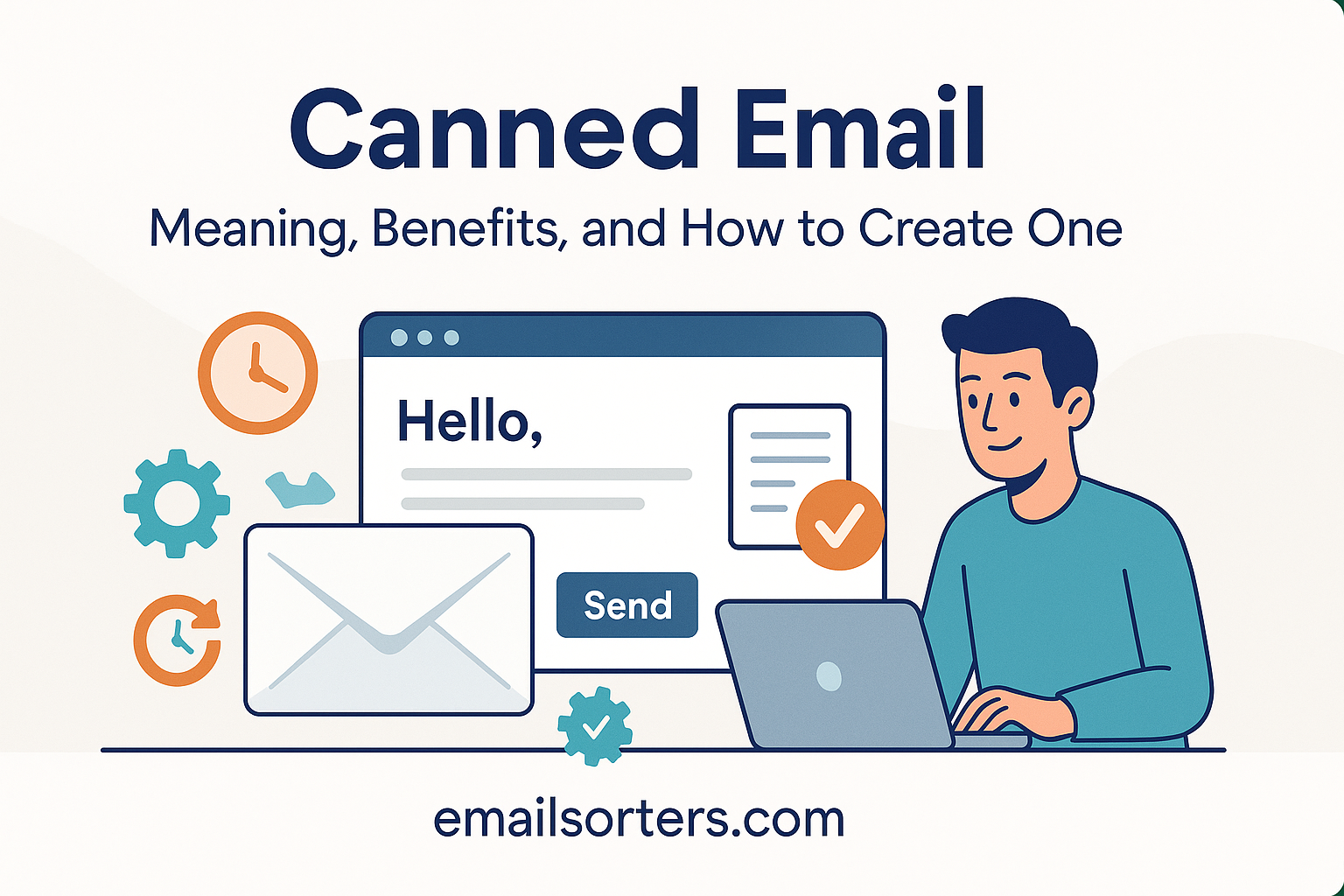Free business email accounts are essential for professional communication in 2025. Email remains the backbone of business, whether you’re a freelancer or running a small startup.
A reliable and professional email account builds credibility, strengthens your brand, and keeps your data secure. The best part? You can get started without paying anything.
Today’s free business email accounts offer features like custom domains, spam filters, encryption, and productivity tools. The real challenge is finding the right one for your needs.
This guide reviews the 15 best free business email accounts for 2025. These options are perfect for freelancers, startups, and small businesses that want professional communication without spending extra money.
15 Best Free Business Email Accounts
At some point, nearly every business owner asks the same question: What’s the best free business email service? The reality is, not all free options are created equal. An ideal free business email should include reliable spam protection, user-friendly design, generous storage, seamless integration with other business tools, and rock-solid performance.
That’s a tall order, even for paid services. But the good news is, there are some excellent free solutions out there. To save you time and effort, we’ve curated a list of the 15 best free business email accounts. Each offers a solid set of features for small businesses, freelancers, and entrepreneurs. Just choose the one that fits your needs and get started.
Neo
Neo is tailored for entrepreneurs and freelancers who want a professional email without the hassle of buying separate domain hosting. Neo gives users a free custom domain like you@yourbusiness.co.site.
It also comes with a simple website builder, making it ideal for freelancers or solopreneurs looking to build a presence quickly. Neo includes read receipts, branding support, and an easy-to-use mobile app.
Neo doesn’t flood your inbox with ads, and its dashboard feels modern and focused. However, advanced customization or multiple domain linking is reserved for paid users.
This platform is perfect for solo entrepreneurs and freelancers needing branding tools with email.
Gmail
Gmail remains a powerhouse for free business email. While it doesn’t include a custom domain for free, its tools, speed, and reliability make it a staple. With 15 GB of storage shared across Google Workspace, it’s great for businesses already using Google Drive, Docs, or Meet.
Features like Smart Compose, strong spam filters, and seamless mobile sync make Gmail feel like a premium tool. That said, ads occasionally pop up in personal inboxes, and there are some privacy tradeoffs.
Best for startups and growing teams that want a smooth integration with productivity apps and cloud storage.
Titan
Titan focuses on business users only. It doesn’t offer free plans directly but is often bundled for free with domain purchases from registrars like Namecheap or Hostinger.
Titan offers clean branding, custom domain support, templates, and advanced inbox features like scheduled send and read receipts. Its dashboard is clean and focused on productivity.
While not universally free, Titan becomes a no-brainer if you’re purchasing a domain—it feels premium and is ideal for startups building their brand.
Zoho Mail
Zoho Mail is one of the best professional email providers with a solid free tier. You can use a custom domain for up to 5 users without paying a cent.
It includes 5 GB of email storage, a sleek interface, no ads, and calendar/task tools. It doesn’t have the deep integrations Gmail does, but it’s more private and business-oriented.
Zoho Mail is a great fit for small teams and SMEs who want secure, branded communication without ad clutter.
GMX Mail
GMX is lesser-known but generous, offering 65 GB of storage and attachments up to 50 MB. It allows alias creation and comes with virus/spam protection.
Though its interface feels a bit dated, it offers stable performance. You can’t use your custom domain directly in the free plan, but it’s great for file-heavy work.
GMX is best for freelancers who share large files or need secondary storage-heavy email accounts.
Outlook.com
Outlook.com is Microsoft’s free email solution and comes packed with features. With 15 GB of storage, Focused Inbox, Office 365 integration, and strong anti-phishing filters, it’s built for business.
It doesn’t support custom domains in the free version, but it’s fantastic if you’re already using Excel, Word, or Teams.
Great for corporate-style communication, especially in hybrid teams already within the Microsoft ecosystem.
Yahoo Mail
Yahoo Mail surprises many with its 1 TB of free storage, yes, terabytes! It supports disposable email addresses, filters, and an updated UI.
There’s no free custom domain support, and it shows display ads, but the sheer storage makes it ideal for media-heavy businesses or anyone who doesn’t want to delete emails.
It works well for small businesses that store large volumes of messages and files.
ProtonMail
ProtonMail is a privacy-first email provider based in Switzerland. It offers end-to-end encryption, no tracking, and a clean, minimalist interface.
The free version gives 1 GB of storage and limited daily messages. You can’t add a custom domain unless you upgrade, but for confidential communication, it’s a trusted name.
Ideal for privacy-focused businesses, legal professionals, and healthcare startups.
AOL Mail
AOL Mail is still around and offers unlimited storage. While the interface looks slightly outdated and includes ads, it’s stable and easy to use.
It doesn’t support custom domains and lacks modern integrations. But for simple business communication or backups, it’s solid.
Great for legacy users or backup business addresses.
Guerrilla Mail
Guerrilla Mail is a temporary email provider. It’s not for regular business use, but it’s useful for signing up for services when you don’t want spam in your primary inbox.
It generates a random email that self-destructs after a short period. It’s not secure or suited for ongoing use.
Best for temporary use during B2B signups, trials, or spammy form submissions.
Mail.com
Mail.com lets you choose from over 200 domain extensions like @consultant.com or @engineer.com. It includes 2 GB of storage, antivirus, and spam filtering.
You can’t link your own domain, but the custom extension helps boost credibility. Its UI is simple, though not very modern.
Best for freelancers wanting a creative, professional-looking email without paying for a domain.
Mailfence
Mailfence is based in Belgium and focuses on secure collaboration. It offers 500 MB of email storage on the free plan, encryption, and built-in calendars and document tools.
Mailfence doesn’t sell data or show ads. While limited in free storage, it’s great for small teams who value privacy.
Perfect for NGOs, researchers, or secure small businesses needing trusted encryption.
Tutanota
Tutanota offers end-to-end encrypted email with 1 GB of storage. It’s open-source and has no ads or tracking. The interface is clean and mobile-ready.
While free accounts don’t support custom domains, premium upgrades are affordable. The focus here is on security and sustainability.
Ideal for eco-conscious businesses, activists, and privacy-first founders.
iCloud Mail
iCloud Mail is built into Apple’s ecosystem. You get 5 GB of free storage across all iCloud services. It’s reliable, clean, and syncs smoothly across iPhones, Macs, and iPads.
There’s no free custom domain support, but the interface is polished and simple. For Apple users, it’s the easiest setup.
Great for freelancers and founders working within the Apple ecosystem.
Yandex.Mail
Yandex.Mail is Russia’s answer to Gmail. It offers 10 GB of free storage, spam protection, and allows use of custom domains even on the free plan (via Yandex.Connect).
The interface is fast and clean, and it offers calendar, cloud, and task tools. However, it may raise concerns for users in jurisdictions sensitive to Russian hosting.
Best for international startups and businesses needing domain branding at zero cost.
Use Email Sorter to Manage Your Free Business Email Account
Once your inbox starts filling up, chaos follows, especially if you’re managing more than one business email. Missed leads, delayed replies, and a mountain of spam can impact your credibility and workflow.
An email sorter tool helps bring order. It lets you label messages, organize by sender or topic, set auto-rules, and filter out noise. Sorting tools are also great for scheduling follow-ups or tagging client conversations.
- One key feature is automated filtering based on rules you set—saving hours of manual sorting.
You can check out our email productivity tools and email management software guides to find the right solution for your team.
Conclusion
Choosing the right free business email account in 2025 can boost your credibility, keep your data secure, and simplify communication. Whether you need encryption, domain branding, or massive storage, there’s something for everyone.
Here are our top 3 picks:
- Zoho Mail – Best all-rounder for free business domains and team tools.
- Gmail – Best for integrations and productivity features.
- Neo – Best for solopreneurs needing branding without buying a domain.
Start with the one that suits your workflow. And don’t forget to pair it with an email sorting tool to keep your inbox lean and your business communication laser-focused.




